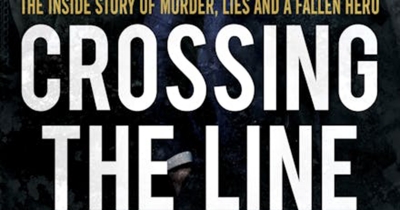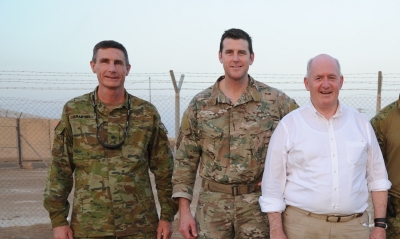Accessibility Tools
- Content scaling 100%
- Font size 100%
- Line height 100%
- Letter spacing 100%
Ben RobertsSmith
The ABR Podcast
Released every Thursday, the ABR podcast features our finest reviews, poetry, fiction, interviews, and commentary.
Subscribe via iTunes, Stitcher, Google, or Spotify, or search for ‘The ABR Podcast’ on your favourite podcast app.
The red thread: Xi Jinping’s ideology of power
by Neil Thomas
This week on The ABR Podcast, Neil Thomas reviews On Xi Jinping: How Xi’s Marxist Nationalism is shaping China and the world by Kevin Rudd. Thomas explains that even China watchers find it hard to be clear on the thoughts and plans of the leader of the Chinese Communist Party. They disagree, he tells us, on basic, critical questions, such as for how long Xi will rule. ‘Enter Kevin Rudd’, Thomas writes. ‘In his latest book, former prime minister Kevin Rudd adds a worthy new chapter to his life of public service, digesting thousands of pages of “Xi Jinping Thought” so that you do not have to’. Neil Thomas is a Fellow on Chinese Politics at Asia Society Policy Institute’s Center for China Analysis in Washington DC. Here is Neil Thomas with 'The red thread: Xi Jinping's ideology of power' by Neil Thomas, published in the December issue of ABR.
Recent episodes:
On this week’s ABR Podcast hear leading defamation scholar David Rolph discuss recent proceedings in the Federal Court relating to the reputation of Ben Roberts-Smith, a decorated soldier accused of war crimes in Afghanistan. David Rolph is a Professor of Law at Sydney University and the author of several books, including Reputation, Celebrity and Defamation Law and Defamation Law. Here is David Rolph with ‘Self-inflicted wounds: A vindication of investigative journalism’, which will appear in the July issue of ABR.
... (read more)Justice Anthony Besanko’s dismissal of Ben Roberts-Smith’s defamation proceedings against a trio of mastheads – The Age, The Canberra Times, and The Sydney Morning Herald, at the time all owned by Fairfax – was a comprehensive victory for those newspapers. It was a vindication of their serious investigative journalism on matters of high public interest. And it was a devastating blow to the reputation of Roberts-Smith.
... (read more)



